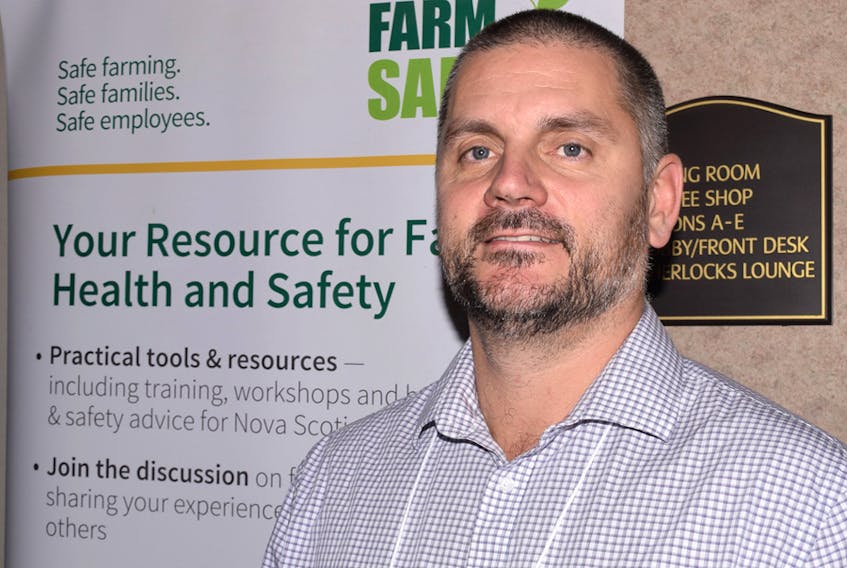TRURO, N.S. – Chris van den Heuvel feels as though he’s under attack.
Speaking to the Senate of Canada earlier this month, the Port Hood farmer warned those in the industry are under increasing mental duress, facing everything from the impact of foreign trade deals to militant animal rights protestors.
“Farmers are concerned that people don’t value what we do to help them live – to provide safe and healthy food for them,” said van den Heuvel. “We’re here to provide a safe, sustainable, healthy food system. All we ask for is support – and we don’t feel that we’re getting that right now.”
Such feelings are commonplace among Nova Scotia farmers who face a looming mental health crisis, according to Dr. Andria James-Bitton. She addressed the audience at the recent Nova Scotia Federation of Agriculture’s AGM, in Truro via phone.
Mental health stresses impacting farmers include many factors beyond their control, such as heavy workloads, drought and other extreme weather events, financial worries, uncertain market prices, red tape, disease outbreaks and family relations.
“We’ve got a problem in Canadian agriculture and many of our farmers are struggling, even if they’re not talking about it,” said James-Bitton via conference call from Ontario. “Farmers in multiple countries are at increased risk of suicide.”
Farmer Chris de Waal weathered his own storm in 2016, when his farm outside Canning was caught in a drought that gripped the Annapolis Valley. His operation lost both crops and feed for his cattle, a heavy financial toll for his farm, which specializes in beef sales.
“It’s something that is quite concerning to a lot of us, especially us young farmers, as we see our older colleagues struggle,” said de Waal. “I’m naively optimistic in the sense that we are talking more and more about mental health – and one of the critical solutions to it is community.”
Nevertheless, James-Bitton’s statistics are grim: of 1,100 farmers across Canada polled between September 2015 and February 2016, 45 per cent reported feeling highly stressed.
Of the same group, 58 per cent felt some degree of anxiety and another 35 per cent reported feeling depressed.
The poll’s findings revealed a lack of family and industry support were key factors behind raised stress levels, with pig farmers suffering most of all. James-Bitton said that was possibly due to porcine epidemic diarrhoea virus outbreaks.
Echoing van den Heuvel, James-Bitton said many farmers feel ignored by the government.
Some responses she’s received: “I’m destroying myself so that others are cared for.”; or, “I’m pulled in multiple directions and unable to meet the work life balance.”
Both James-Bitton and van den Heuvel called for a national strategy to improve farmers’ mental health.
This could include industry social workers helping anyone facing issues, or even relief workers visiting a farm to care for animals while a farmer recovers from a health or family crisis.
Van den Heuvel said people staffing phone helplines should receive training to understand mental health issues faced specifically by farmers, such as stress over crop yields.
Such measures would improve the wellbeing of farmers, their families and their animals. James-Bitton said most cases of animal abuse or neglect on farms occur when farmers facing a mental health crisis like depression are unable care for themselves or anyone else.
“When we have more wellness in our lives, we can expect better health and more productivity and more profitability,” said James-Bitton.









